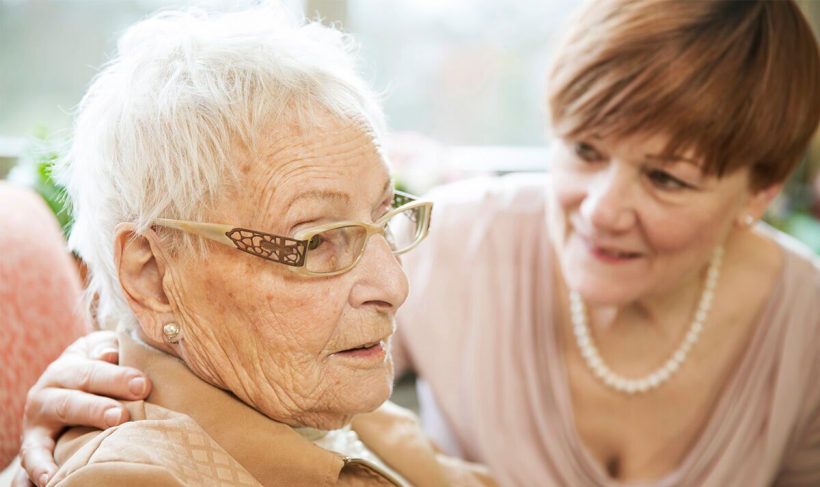Early symptoms of dementia explained in NHS video
Dementia is a serious and often devastating condition for both the sufferer and their loved ones.
A syndrome related to the ongoing decline of the brain, it can result in memory loss, behavioural changes and even mobility issues.
As with any medical problem, the sooner you spot symptoms of dementia and seek help, the better support options the patient has.
However, a new survey by the Alzheimer’s Society revealed that only one in three people tell their doctors about themselves or a loved one experiencing dementia symptoms within the first month.
The poll of 1,100 people showed that many people stayed quiet because they weren’t certain which symptoms were dementia-like and which were just normal ageing.

“One in three people (33 percent) who notice symptoms of dementia in themselves or a loved one keep their fears to themselves for over a month,” the charity said.
According to the survey, only 15 percent of people addressed the issue straight away, while 11 percent said they still haven’t raised their concerns after spotting the first symptom.
This has a knock-on impact on how quickly people are able to get help, and 23 percent waited more than six months before they spoke to a medical professional.
Early signs of dementia including difficulty following a conversation, difficulty concentrating and memory loss could be mistaken for normal signs of ageing such as hearing loss and forgetfulness.
Don’t miss…
Six dementia signs that may become ‘more pronounced’ in the summer[EXPERT]
Excessive alcohol intake may push Alzheimer’s disease forward by a ‘few years'[STUDY]
First signs of dementia as Corrie legend Julie Goodyear diagnosed with illness[CELEBRITY]

Bruce Willis’ diagnosis
This was the case for actor Bruce Willis, whose first symptoms of dementia were put down to hearing loss by his family.
In an op-ed for Vogue last May, his daughter Tallulah wrote that the family assumed he had hearing damage from working on the 1988 action film, Die Hard.
“I’ve known that something was wrong for a long time,” she said.
She added that family members would often encourage each other to, “Speak up! Die Hard messed with Dad’s ears.”
We use your sign-up to provide content in ways you’ve consented to and to improve our understanding of you. This may include adverts from us and 3rd parties based on our understanding. You can unsubscribe at any time. More info

“Later, that unresponsiveness broadened, and I sometimes took it personally,” Tallulah wrote.
Besides the confusion with ageing, the survey showed that 16 percent of participants admitted they were “avoiding” a diagnosis because they were worried about how their personal relationships would change.
And 44 percent of people in the survey said they were concerned that their caretakers or family members would begin to “talk down” to them.
Kate Lee, chief executive officer of the Alzheimer’s Society, said: “We can’t continue to avoid the ‘d’ word – we need to face dementia head on.
“As soon as you realise something is not right, come to Alzheimer’s Society – you can use our symptoms checklist to help have that all-important first chat with your GP.”
The NHS lists the earliest signs of dementia as:
- Memory loss
- Difficulty concentrating
- Finding it hard to carry out familiar daily tasks, such as getting confused over the correct change when shopping
- Struggling to follow a conversation or find the right word
- Being confused about time and place
- Mood changes.
More advanced dementia can lead to:
- Communication problems – some people may eventually lose the ability to speak altogether
- Mobility problems – many people become less able to move about unaided
- Behavioural problems – such as increased agitation, depressive symptoms, anxiety, wandering, aggression, or sometimes hallucinations
- Bladder and/or bowel incontinence
- Appetite and weight loss problems.
If you think you or someone you know is experiencing symptoms of dementia you should speak to a doctor.
Source: Read Full Article
